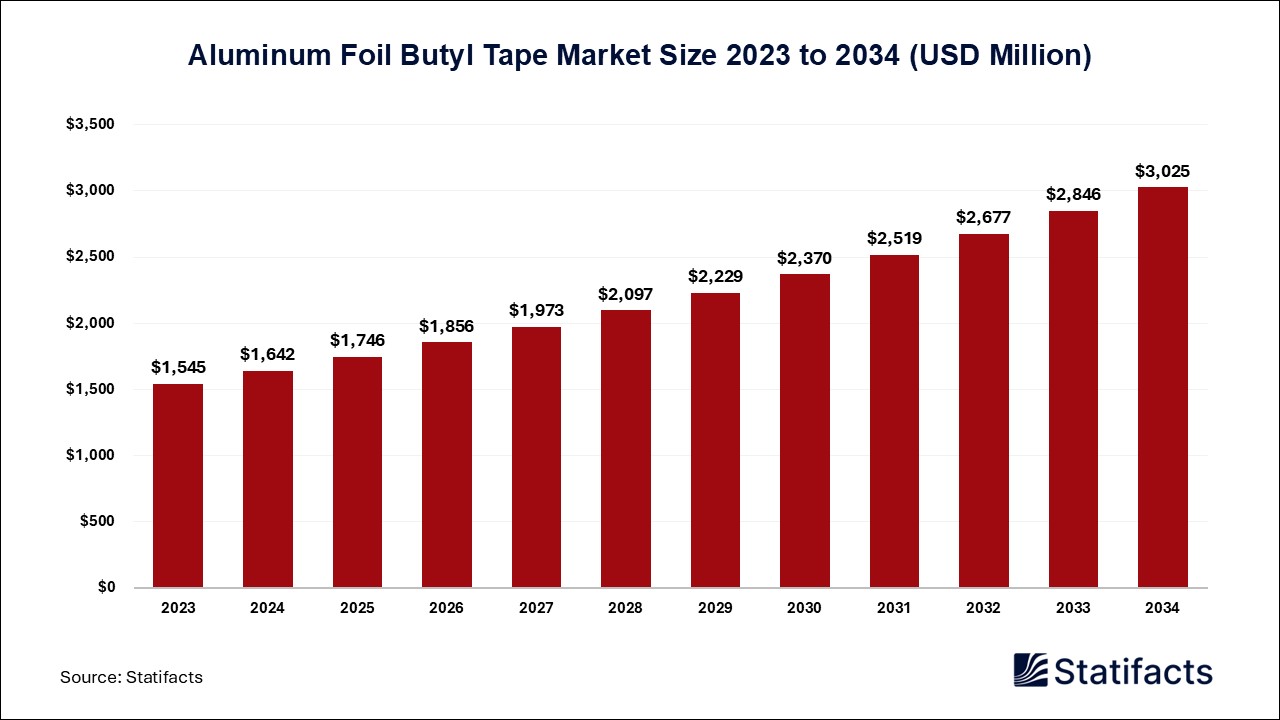Last Updated: 24 Jun 2025
Source: Statifacts
By clicking “Accept All Cookies” you agree to the storing of cookies on your device to enhance site navigation, analyze site usage, and assist in our marketing efforts.
Privacy PolicyThe global CRISPR-based gene editing market size was evaluated at USD 4.04 billion in 2024 and is expected to grow around USD 13.39 billion by 2034, registering a CAGR of 12.73% from 2025 to 2034.
| Industry Worth | Details |
| Market Size in 2025 | USD 4.46 Billion |
| Market Size by 2034 | USD 13.39 Billion |
| Market Growth Rate from 2025 to 2034 | CAGR of 12.73% |
The CRISPR-based gene editing market involves the synthesis and use of technologies programmed to permit precise and efficient modification of DNA, which are becoming progressively integral to a variety of fields, including agriculture, therapeutic development, and biomedical research, due to their specificity, versatility, and transformative potential over multiple sectors. Growing knowledge among clinicians, researchers, and regulators about the therapeutic potency of CRISPR is accelerating its acceptance across various sectors. CRISPR and other similar gene editing technologies are being studied for their potential in curing conditions such as AIDS and HIV infections by specifically targeting and removing the virus DNA from the infected cells.
Despite the high level of interest in CRISPR and other gene editing technologies, there are several safety concerns related to the development of gene editing. Gene editing technologies as a whole are raising ethical issues due to the potential for abuse with the development of CRISPR babies, which is seen by many as selective breeding. Despite these obstacles to market growth, gene-editing knowledge is fostering more rapid clinical trials, earlier-stage research investments, and stronger support for regulatory pathways that permit faster, yet safer, market entry for gene-editing therapies.
“Securing a DMF for our ActiCells GMP hiPSC line, along with introducing our ActiCells GMP TARGATT™ hiPSC Knock-in Kit, represents a major advancement for the cell therapy industry,” said Ruby Tsai, Ph.D., CEO at Applied StemCell. “By providing a fully characterized, regulatory-ready iPSC platform, we empower researchers to accelerate development while reducing manufacturing and regulatory hurdles.”
ToolGen's CEO, Jong Sang Ryu, commented, "Vertex's CASGEVY was born from ToolGen's proprietary CRISPR RNP technology. As the company behind the world's first CRISPR Cas9-based gene therapy, we believe Vertex should fairly recognize ToolGen's contribution through appropriate licensing for the use of our CRISPR Cas9 and CRISPR RNP technologies in developing this innovative treatment."
Artificial intelligence (AI) transformed the field of gene therapy by permitting more precise, efficient, and customized treatments. AI tools, mainly deep learning (DL) and machine learning (ML) algorithms, are being leveraged to determine large genomic datasets, detect potential gene targets, and forecast the results of genetic modifications. These AI-driven approaches can improve gene editing techniques such as CRISPR-Cas9 by forecasting off-target effects and enhancing editing accuracy. CRISPR technology permits precise and efficient manipulation of the genome, and its application in cancer research has the potency to target specific genetic mutations that boost the expansion and spread of tumors.
The CRISPR-based gene editing market is experiencing significant growth, with North America maintaining its position as the dominant region while Europe emerges as the rapidly growing market. The Asia Pacific region is projected to be the fastest-growing in the CRISPR-based gene editing market during the forecast period.
North America
North America dominated the global CRISPR-based gene editing market in 2024. North America, mainly the US, boasts a well-known network of contributing academic institutions and research organizations such as the Broad Institute and MIT, boosting advancements in CRISPR science. Government agencies such as the National Institutes of Health (NIH) offer substantial funding for CRISPR research, encouraging innovation and accelerating breakthroughs.
Europe
Europe is experiencing rapid growth in the CRISPR-based gene editing market during the forecast period. The European Commission's initiatives, such as the European Green Deal, open possibilities for CRISPR-derived solutions, mainly in agriculture. CRISPR technology is being surveyed for treating a broad range of diseases, including cancer, genetic disorders, and rare diseases.
Asia Pacific
Asia Pacific is projected to be the fastest-growing CRISPR-based gene editing market during the forecast period. Increased disposable incomes in countries such as China and India are permitting greater access to healthcare and driving the acceptance of advanced gene editing technologies. Significant government investments in R&D are supporting indigenous abilities in gene editing technologies within the region.
The CRISPR-based gene editing market is undergoing rapid growth, driven by technological developments, increasing incidence of genetic disorders, and growing investments in research and development.
CRISPR Therapeutics AG is a gene editing company. The company's products are mainly used in the healthcare industry, primarily in the treatment and prevention of both common and rare diseases.
Thermo Fisher Scientific Inc. (Thermo Fisher) provides analytical instruments, specialty diagnostics, life sciences solutions, laboratory, pharmaceutical, and biotechnology services. It markets products via a direct sales force, electronic commerce, customer-service professionals, and third-party distributors.
Agilent Technologies targets competition from numerous companies in the market for laboratory solutions and analytical instrumentation. These companies provide similar products and services, including software and instruments, targeting the same end markets such as research, pharmaceuticals, and diagnostics.
Published by Kesiya Chacko
Last Updated: 24 Jun 2025
Source: Statifacts
Last Updated: 24 Jun 2025
Source: Statifacts
| Subsegment | 2024 | 2025 | 2026 | 2027 | 2028 | 2029 | 2030 | 2031 | 2032 | 2033 | 2034 |
|---|---|---|---|---|---|---|---|---|---|---|---|
| CRISPR/Cas9 Technology | 2,239.11 | 2,469.07 | 2,734.96 | 3,043.04 | 3,401.31 | 3,818.20 | 4,305.60 | 4,876.57 | 5,547.56 | 6,338.53 | 7,270.14 |
| CRISPR/Cas12 Technology | 551.67 | 605.99 | 668.65 | 741.04 | 825.14 | 922.49 | 1,036.14 | 1,168.81 | 1,324.24 | 1,506.86 | 1,719.47 |
| CRISPR/Cas13 Technology | 256.94 | 278.77 | 303.73 | 332.23 | 365.19 | 402.57 | 445.93 | 495.85 | 553.54 | 620.38 | 694.27 |
| Base Editing | 704.04 | 793.91 | 898.94 | 1,022.26 | 1,166.33 | 1,337.76 | 1,539.47 | 1,779.18 | 2,064.62 | 2,405.61 | 2,825.87 |
| Prime Editing | 181.69 | 202.31 | 226.28 | 254.23 | 286.81 | 325.14 | 370.10 | 423.15 | 485.91 | 560.39 | 650.20 |
| Epigenetic Editing | 69.93 | 74.70 | 80.07 | 86.06 | 92.93 | 100.41 | 108.98 | 118.56 | 129.29 | 141.32 | 152.94 |
| Others | 33.63 | 36.13 | 38.96 | 42.15 | 45.83 | 49.90 | 54.60 | 59.91 | 65.96 | 72.83 | 79.93 |
Last Updated: 24 Jun 2025
Source: Statifacts
Journals:
| Subsegment | 2024 | 2025 | 2026 | 2027 | 2028 | 2029 | 2030 | 2031 | 2032 | 2033 | 2034 |
|---|---|---|---|---|---|---|---|---|---|---|---|
| CRISPR/Cas9 Technology | 2,239.11 | 2,469.07 | 2,734.96 | 3,043.04 | 3,401.31 | 3,818.20 | 4,305.60 | 4,876.57 | 5,547.56 | 6,338.53 | 7,270.14 |
| CRISPR/Cas12 Technology | 551.67 | 605.99 | 668.65 | 741.04 | 825.14 | 922.49 | 1,036.14 | 1,168.81 | 1,324.24 | 1,506.86 | 1,719.47 |
| CRISPR/Cas13 Technology | 256.94 | 278.77 | 303.73 | 332.23 | 365.19 | 402.57 | 445.93 | 495.85 | 553.54 | 620.38 | 694.27 |
| Base Editing | 704.04 | 793.91 | 898.94 | 1,022.26 | 1,166.33 | 1,337.76 | 1,539.47 | 1,779.18 | 2,064.62 | 2,405.61 | 2,825.87 |
| Prime Editing | 181.69 | 202.31 | 226.28 | 254.23 | 286.81 | 325.14 | 370.10 | 423.15 | 485.91 | 560.39 | 650.20 |
| Epigenetic Editing | 69.93 | 74.70 | 80.07 | 86.06 | 92.93 | 100.41 | 108.98 | 118.56 | 129.29 | 141.32 | 152.94 |
| Others | 33.63 | 36.13 | 38.96 | 42.15 | 45.83 | 49.90 | 54.60 | 59.91 | 65.96 | 72.83 | 79.93 |
The CRISPR-based gene editing market is driven by the adoption of CRISPR/Cas9 and CRISPR/Cas12 technologies, with a growing focus on in-vivo gene editing. The demand for CRISPR services, such as screening and therapeutic research, is increasing across industries including healthcare and agriculture.
Key growth drivers include rising genetic disorders, increasing investments in research and development, government funding, and the integration of AI to improve gene editing accuracy and efficiency.
The CRISPR market offers strong investment potential, with expected growth from USD 4.46 billion in 2025 to USD 13.39 billion by 2034. The expanding applications in healthcare, agriculture, and livestock provide multiple investment opportunities.
Disruptive technologies like CRISPR/Cas12 and AI integration are enhancing gene editing precision, improving treatment outcomes, and enabling faster development of therapies, making the technology more accessible and efficient.
Regulatory oversight ensures the safety and efficacy of gene-edited therapies but can also slow market entry. Ethical concerns, such as genetic modifications in humans, influence regulatory frameworks, impacting the pace of adoption.
The market is competitive, with leaders like CRISPR Therapeutics, Thermo Fisher Scientific, and Agilent Technologies. Smaller biotech firms and collaborations also play a significant role, accelerating innovations and product development.
The CRISPR market is set for rapid growth, driven by technological advancements, increasing applications in therapeutic and agricultural sectors, and clearer regulatory frameworks. AI and machine learning will further enhance the precision and accessibility of gene editing.
To get full access to our Market Insights, you need a Professional Account or a Business Suite.

You will receive an email from our Business Development Manager. Please be sure to check your SPAM/JUNK folder too.

You will receive an email from our Business Development Manager. Please be sure to check your SPAM/JUNK folder too.

Our customers work more efficiently and benefit from


